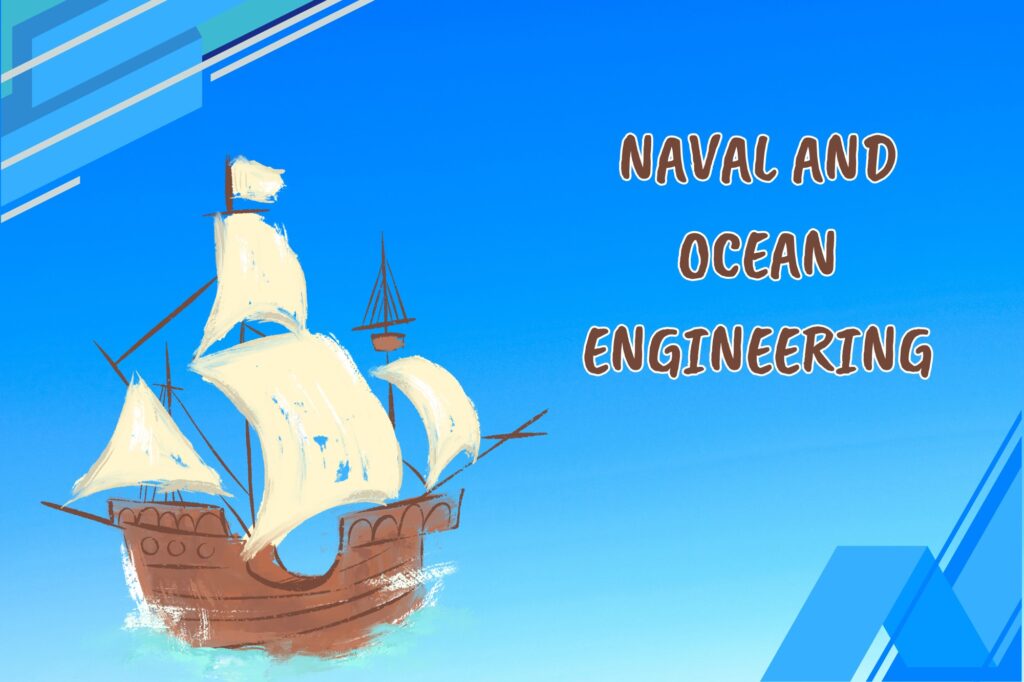Naval architecture and ocean engineering are closely related fields that involve designing and constructing various marine vessels and offshore structures. These fields are critical in ensuring global maritime transportation and exploration safety, efficiency, and sustainability.
Naval Architecture
Naval architecture deals primarily with designing and constructing ships, boats, and other floating structures. It involves a range of disciplines, including hydrodynamics, structural engineering, materials science, and control systems. Naval architects use their knowledge of these fields to create vessels that can withstand the harsh conditions of the ocean while optimizing performance and minimizing environmental impact.
Ocean Engineering
Ocean engineering focuses on designing and constructing offshore structures such as oil rigs, offshore wind turbines, and underwater pipelines. This field involves mechanical engineering, geotechnical engineering, and environmental science to create structures that can withstand extreme weather conditions and harsh underwater environments. Both naval architecture and ocean engineering are keys to advancing marine transportation and exploration.
The Scope of Naval and Ocean Engineering Courses in India
Naval and Ocean engineering deal with designing, constructing, and operating ships, boats, and other seafaring vessels. It also covers the development of offshore structures, such as oil rigs and offshore wind farms. This engineering field has gained momentum in India in recent years, with more and more students opting for these courses.
Naval and Ocean engineering courses in India offer an extensive range of shipbuilding, marine engineering, and ocean engineering courses. These courses are designed to provide students with the technical knowledge and skills required to become successful professionals in the field. Students can pursue these courses from undergraduate to doctoral level.
Courses
The undergraduate courses usually provide students with an introduction to the fundamentals of naval and ocean engineering, such as marine engineering, shipbuilding, and offshore engineering. At the postgraduate level, students can choose from various advanced courses, such as marine engineering and shipbuilding, ocean engineering, offshore engineering, and marine surveying. Doctoral courses in Naval and Ocean engineering are usually research-based and involve exploring concepts and ideas in the field.
The course explains marine structures and vessels’ design, construction, and maintenance. Pursuing this course opens up shipyards, offshore industries, port management, and naval architecture opportunities.
Where to Pursue Naval and Ocean Engineering?
The ongoing development of new technologies in these fields is helping to improve vessel safety, reduce emissions, increase fuel efficiency, and expand the possibilities for underwater research.
Requirements
1. Academic Requirements
First, you must meet the educational requirements for naval and ocean engineering. This typically involves earning a bachelor’s degree in engineering or a related field with coursework on naval or marine engineering topics. You may also need to have completed courses in physics, mathematics, computer science, materials science, and other related fields.
2. Certifications
In addition to completing your degree program, you may need to obtain certifications from professional organizations such as the American Society of Naval Engineers (ASNE). These certifications demonstrate your field knowledge and can open up additional career opportunities.
3. Experience
Finally, gaining experience is essential for success as a naval or ocean engineer. While working towards your degree program, looking for internships or volunteer opportunities within the industry is important. This will give you hands-on experience with various projects and allow you to develop valuable skills that will be useful when seeking employment after graduation.
A naval and ocean engineering career is a great way to use your skills to help protect our environment while earning a decent salary. The median salary for naval engineers is around $90,000 per year. Additionally, many employers offer excellent benefits packages, including health insurance, tuition reimbursement, retirement plans, and more. In addition to this field’s financial rewards, there are plenty of opportunities for travel and exploration. Naval engineers often get the chance to work on vessels worldwide. This can be a great opportunity to visit new places while still doing meaningful work. Finally, working as a naval engineer offers the chance to make a real difference in our world. By working on projects that protect our environment or improve safety standards at sea, you can impact people’s lives every day.



